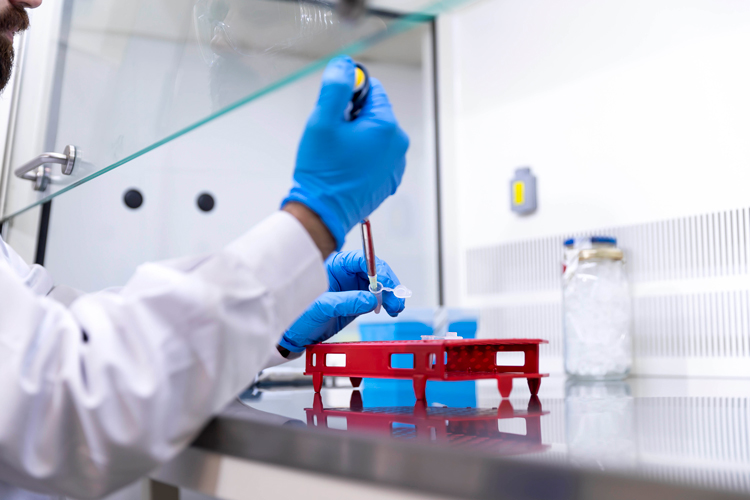IQS is working to develop new active ingredients and processes in the field of enzymes and plant stem cells for cosmetics and perfumes.

Biotechnology significantly contributes to improving countless industrial processes across various sectors. The widely growing role it plays in the fields of cosmetics and perfumes is worth highlighting.
As part of its commitment to biotechnology as a key element for ensuring the sustainability of industrial processes, IQS is working through two of its research groups, the Biological and Biotechnological Chemistry Group (GQBB) and the Materials Engineering Group (GEMAT), along two main lines of action aimed at developing new active ingredients and new processes in the areas of cosmetics and perfumes:
– In the first line, bioinformatics and artificial intelligence methodologies are being applied to aid in discovering new substances and enzymes that make it possible to develop innovative and effective active ingredients in cosmetics and to adapt traditional fragrance production processes (chemical synthesis) to more sustainable processes through the use of biocatalysts.
– The other line of work is based on the use of plant stem cells to obtain cosmetics products with high added value that contribute to reducing synthetic or animal origin ingredients.
Both lines of work converge on concrete projects with companies in the sector that are being carried out in the aforementioned IQS research groups.
The IQS Commitment
Within this context of innovation in the cosmetics and perfume industry, on 21 September, IQS will hold the session “Science and innovation: elements of competitiveness in the cosmetics industry,” organized by the IQS Tech Transfer division in collaboration with the Beauty Cluster.
The rise of biotechnology and IQS’s commitment to it are highly relevant. Recently, IQS sponsored and participated in the presentation of the report by the Spanish Bioindustry Association (Asebio). The report reflected both the important role that biotechnology plays in the Spanish industrial sector, seeing growth for the sixth consecutive year, and on the education of new talent in these innovative and sustainable disciplines that encompass 13 of the 17 Sustainable Development Goals set out by the United Nations in its 2030 Agenda.










